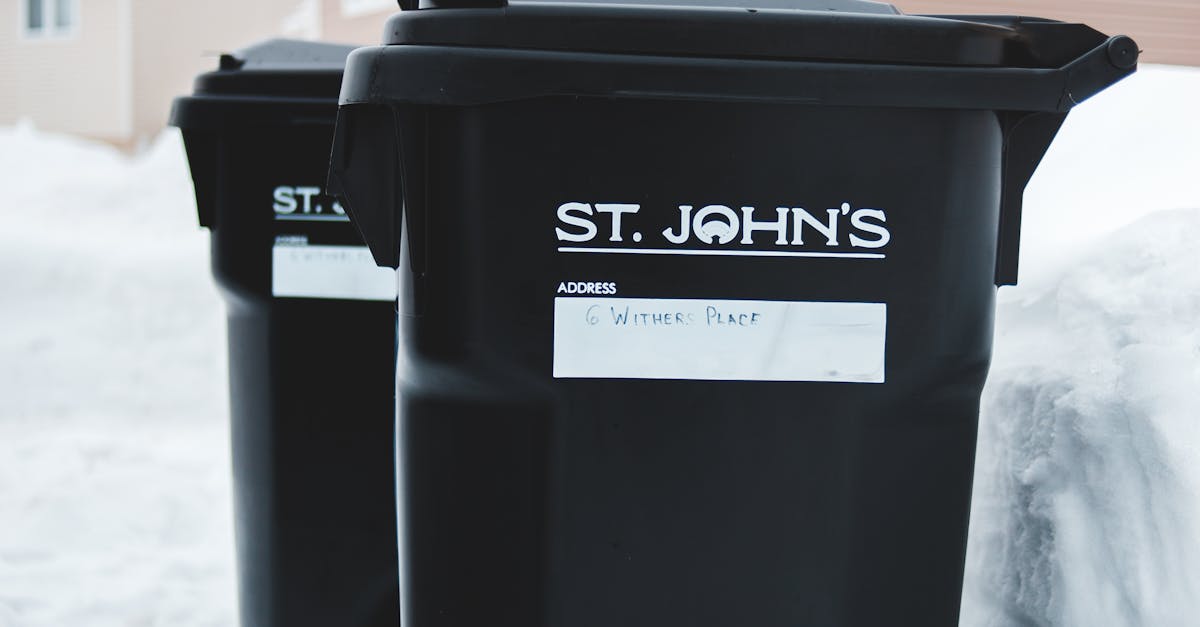What is the most common dumpster rental?

Table Of Contents
Rental Duration and Its Impact
The length of time a dumpster is rented can significantly influence both cost and convenience. Short-term rentals are often ideal for small projects such as home cleanouts or minor renovations. These rental durations typically range from just a few days to a week, allowing users to efficiently dispose of debris without the burden of long-term commitments.
Longer rental periods are preferable for larger projects like major construction or landscaping jobs. These durations can extend to several weeks or even months, providing ample time for users to manage the waste generated throughout their projects. However, longer rentals may also lead to increased fees, necessitating careful planning to balance time needs with budget constraints.
Common Rental Periods for Dumpsters
Dumpster rentals typically come with a range of rental periods that cater to various project needs. Most companies offer options that can span from a single day to several weeks. Short-term rentals are often ideal for smaller jobs such as home cleanouts or remodeling tasks, while long-term rentals suit larger projects like major renovations or construction work.
Selecting the appropriate rental duration can significantly impact both cost and efficiency. Choosing a rental period that aligns with the timeline of the project ensures that waste is managed effectively. It helps prevent additional charges that may arise from extending the rental, while also minimizing the risk of delays in project work due to inadequate waste removal.
Pricing Structures for Dumpster Rentals
The cost of renting a dumpster can vary significantly based on multiple factors. Local market rates play a crucial role in determining prices. Factors such as the type of debris, weight limits, and rental duration also influence the overall cost. For instance, heavier materials may incur additional fees due to weight restrictions. Understanding these components helps potential renters budget accurately for their projects.
Different rental companies often have various pricing structures. Some may offer flat rates that encompass a set time frame and weight limit, while others might charge per ton of waste disposed of. Hidden fees can arise from late returns or excess weight, making it essential to read the fine print in rental agreements. Knowing this information upfront can prevent surprises on billing statements and help ensure a smoother renting experience.
Understanding Cost Variations
Cost variations in dumpster rentals can be attributed to several factors. The size of the dumpster plays a significant role; larger units typically command higher fees due to their increased capacity. Rental duration also affects pricing, with longer rentals generally incurring higher overall costs. Additional expenses may arise from the type of waste being disposed of, as certain materials require specialized handling or disposal methods.
Location is another key element influencing price differences. Urban areas often have higher rental rates compared to rural locations due to demand and logistics. Seasonal trends can also impact availability and costs, as peak times could lead to increased rental fees. Understanding these factors can help customers make informed decisions and select the most cost-effective options for their needs.
Environmental Considerations in Dumpster Rentals
Proper waste management is essential in minimizing environmental impact. Many companies that offer dumpster rentals prioritize eco-friendly practices. They implement recycling programs to divert usable materials away from landfills. This commitment to sustainability not only helps reduce waste but also supports local recycling facilities. Homeowners and contractors benefit from these initiatives, as they contribute to a cleaner community.
Awareness of the types of materials being discarded is vital. Certain items require special handling due to their hazardous nature. Companies often provide guidance on what can and cannot be placed in a dumpster. Following these regulations ensures compliance with local environmental laws and promotes safer disposal methods. By choosing responsible dumpster rental services, individuals play a significant role in enhancing waste management practices.
Recycling and Waste Management Practices
Proper recycling and waste management are critical components of the dumpster rental process. Many companies now prioritize eco-friendly practices, encouraging customers to sort recyclable materials from general waste. This sorting not only helps in minimizing landfill waste but also promotes the recycling of valuable resources. Customers can often find guidance from rental companies on what materials can be recycled and how best to separate them, making the process more efficient.
Incorporating recycling initiatives into dumpster rental services has become increasingly prevalent. Some providers even offer specialized dumpsters designed specifically for recyclable items, such as metal, glass, and plastics. This focus on sustainability aids municipalities in reaching their recycling goals and reducing environmental impact. By actively participating in these practices, customers can contribute to a cleaner environment while fulfilling their waste disposal needs.
FAQS
What is the most common type of dumpster rental?
The most common type of dumpster rental is a 10 to 20-yard roll-off dumpster, which is typically used for residential and small commercial projects such as renovations, cleanouts, and landscaping.
How long can I rent a dumpster for?
Rental durations can vary, but common rental periods for dumpsters range from 3 to 14 days, depending on the provider and project needs.
What factors influence the pricing of dumpster rentals?
Pricing for dumpster rentals can be influenced by several factors, including the size of the dumpster, rental duration, type of waste being disposed of, and local disposal fees.
Are there specific items that cannot be placed in a dumpster?
Yes, hazardous materials such as chemicals, batteries, and certain electronic waste are generally prohibited from being placed in a dumpster. It's important to check with your rental company for a complete list of restricted items.
How do I ensure proper waste management and recycling with my dumpster rental?
To ensure proper waste management and recycling, choose a dumpster rental company that emphasizes environmental practices, sort your waste before disposal, and ask about their recycling policies and procedures.